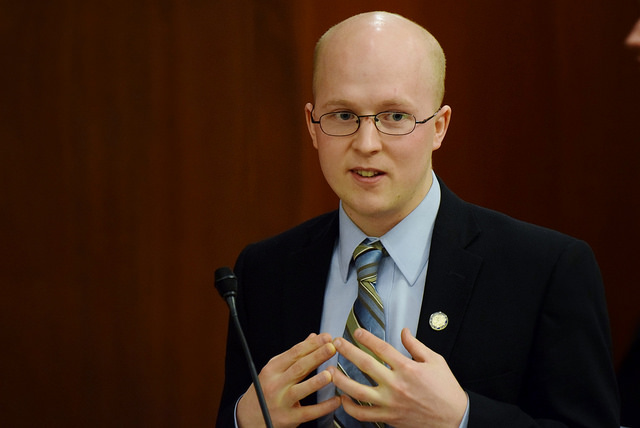
Petersburg’s outgoing representative in the Alaska House called the regular session that ended last month “complicated.”
Democrat Jonathan Kreiss-Tomkins, represents his hometown Sitka, along with Petersburg and many other small island communities in Southeast.
Kreiss-Tomkins said the budget surplus from high oil prices and one-time federal funding made it difficult to pursue any long-term fiscal fix for the years when the price of oil drops again. But he said it helped law makers get their work done on time this year.
“It was sort of functional from the budget perspective because there was enough money to go around for all sorts, of things, including a large PFD (Permanent Fund Dividend), including sustained state services, including capital projects, but we didn’t resolve any of the fundamental issues and there was still not a deficit of acrimony and contention,” Kreiss-Tomkins said.
The lawmaker was glad the final budget did not deplete the earnings of the Permanent Fund. He’s been pushing for a constitutional amendment to cap the amount that legislators can pay from the pot of money. However, his bill proposing that never passed out of House committees and he didn’t see the political will to pass it.
One bill he was happy to see clear both chambers will allow the state to issue a new teaching certificate for Alaska Native language immersion programs.
“Native language programs obviously relevant across Alaska and especially in rural Alaska and world language programs are very popular in Anchorage and in the Mat-Su, and actually some of the best programs you can anywhere in the country in a K-12 setting,” he said. “And this new type of teacher’s certificate is directly tailored to the needs of these immersion language programs. So, I’m really excited about that bill.”
He expects the governor to support that legislation. It had the backing of the Association of Alaska School Boards and the Central Council of Tlingit and Haida Indian Tribes of Alaska. Supporters said it would provide flexibility for school districts to employ fluent teachers in Alaska Native languages.
Kreiss-Tomkins said many bills with broad support and little opposition did not pass, some held by law makers seeking concessions from their colleagues, others just running out of time. He was disappointed to see that fate for his bill to remove convictions for low-level marijuana crimes from online public records.
“Yeah, that’s really frustrating to me.” he said. “That’s a good bill. Governor supports it, think it passed the House like, 35-5, I forget what the final vote was. Universal democratic support and very strong majority republican support. And that was an example of just running out of time.”
That measure also would also have lowered the penalty for underage possession of marijuana for people 18, 19 or 20.
It’s Kreiss-Tomkins’ last year after a decade in the legislature; he’s not running for reelection.











